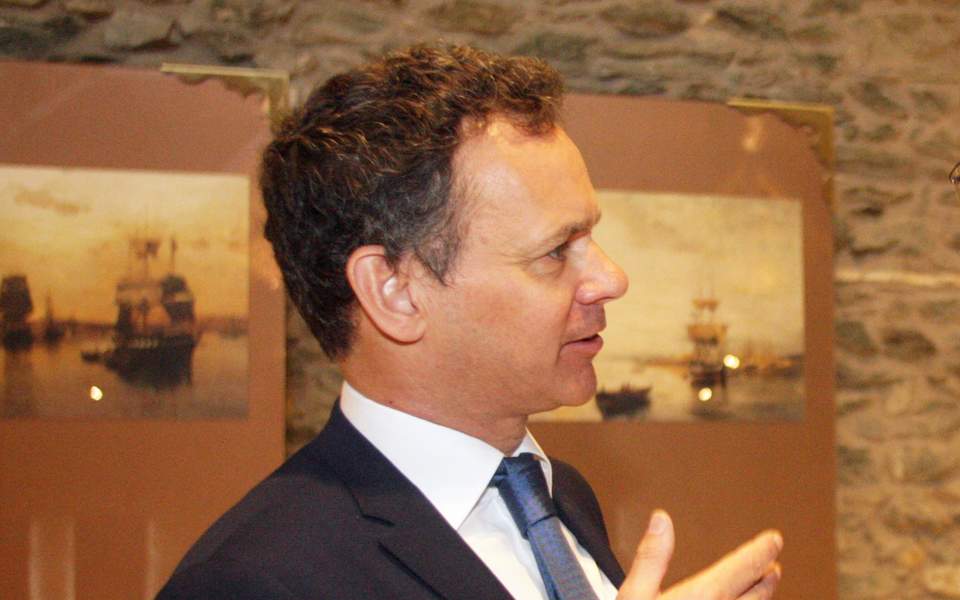Greece is turning a corner, but we are not there yet

Greece is turning a corner, but we are not there yet. Much work has been done. An impressive number of reforms has been adopted. This helped to stabilize the Greek economy and the Greek financial system, and has improved the functioning of the former.
As you know, the focus of the program remains on strengthening fiscal sustainability, safeguarding financial stability, enhancing growth, competitiveness and investment, and modernizing the public sector.
Positive results of all of these efforts are starting to become visible now.
If Greece continues to adopt the required prior actions and successfully completes the fourth review, it is reasonable to say that it will successfully exit the bailout program in August, and that no new European Stability Mechanism (ESM) loans are needed.
That will be an important milestone. But Greece will not yet be able to sit back and relax. Much work remains to be done. The growth potential of the Greek economy needs to be further improved.
The country needs to keep working on the structural challenges of its economy. Greece needs to aim for its economy to converge to a European standard. It is necessary for the government to maintain ownership and to commit itself to continuing and deepening the reforms. We need to develop a type of post-program monitoring that supports and encourages the country to continue modernizing its economy and its public sector. A robust post-program framework is needed to ensure sustained delivery of reforms.
We need to see implementation, ambition and ownership. Many reforms have been adopted on paper. But they will only be effective if fully implemented and sustained. Electronic auctions are a case in point. We need ambition to increase competitiveness. Right now, Greece ranks very low in the Global Competitiveness Index, for example. It is at number 87 in the world in terms of competitiveness, below countries such as Ukraine and Algeria. I believe that is not good enough for a eurozone country. It is at number 67 in the World Bank’s Doing Business Index – there is ample room for improvement there too.
I hope to see ambition from the Greek government to improve the country’s competitiveness. And we need to see ownership by Greece’s political class, government and opposition alike. It also requires that economic opportunity is open to all citizens and efforts are continued to build a socially inclusive society. Greece owns its own future much more than many Greeks believe!
The Netherlands is willing to help. We are a country that is both competitive and socially inclusive. We have actively supported Greece in its reform efforts, by providing technical assistance through European Union channels. We have supported Greece in many ways during the migration crisis. And we provide inspiration via bilateral projects, notably Orange Grove.
Orange Grove is the first startup incubator in Greece, initiated by the Dutch embassy several years ago, with financial support from the Dutch private sector and two private foundations. When I see the level of human capital available there, the young Greeks taking their future in their own hands, starting their own companies, I become optimistic about Greece’s future.
There is so much talent and so much creativity available in Greece. If we can empower that young talent, that creativity, here in Greece, fewer young people will move abroad to look for a better life. I often ask these young people what they want to see improved in Greece. They want good governance, less bureaucracy, a stable and more fair taxation system, and above all, they want to see more meritocracy. Be it in the public sector, in the private sector, at schools or in sports, many young people want to see a change in mentality.
We need meritocratic decision-making in Greece, be it by left- or right-wing governments, and both in the public and private sectors. More than debt relief, Greece needs meritocracy. This is not something that we can translate into a specific prior action. This is not something that you can order from the Eurogroup. This is something about a political and governance culture of responsibility and a mentality that needs to continue to be developed. Many Greeks have suffered during the economic crisis. The price they paid should not be for nothing.
Greece is turning a corner, but we are not there yet. Many reforms have been adopted, but much work remains to be done. There is reason for optimism, but much work ahead.
* Caspar Veldkamp is ambassador of the Netherlands to Greece.





